MOVIE REVIEW – This absurd comedy is one of Netflix’s opening films of 2023. Director Noah Baumbach’s by-turns exhilarating, hilarious, and downright unnerving attempt to tame Don DeLillo’s absurdist comedy White Noise has a lot going for it – not least the reckless spirit and ambition with which the writer-director and his cast dive into an adaptation of the extremely difficult-to-film source material. But in this episodic madness, few messages and gags hit home. With the, at times, truly extravagant visuals, Baumbach wanted to highlight one of the book’s main themes – Americans seeking solace in consumerism over their mortality – but unfortunately, he rarely really succeeds.
The novel, written in the ‘talky’ year 1984, is a postmodern satire of impending unrest and cacophonous chaos, which, especially in its depiction of environmental and man-made disasters, seems even less of a period paranoia today than it did then. But, although it is full of characters and events, it is essentially a rolling succession of absurd ideas, which is probably why it was long considered unfilmable.
That perception doesn’t change much with this Netflix adaptation, which tries hard but doesn’t quite capture the source material. It feels as though the streaming service was so overwhelmed by the deserved critical acclaim for Baumbach’s Marriage Story that they gave him free rein and a mountain of cash to do his passion project, an adaptation of a novel that had previously defeated more than one filmmaker in development hell.
Family “über alles”
This is Baumbach’s third feature film for Netflix, and in many ways it is reminiscent of his first, The Meyerowitz Stories – a loving observation of a strange and boisterous family who tend to talk at once, often at odds with each other.
It’s a blended family of Jack Gladney (Adam Driver) and his wife Babette (Greta Gerwig), both in their fourth marriage and raising children from previous marriages – Jack’s analytically inclined teenage son Heinrich (Sam Nivola) and his more sensitive younger daughter Steffie (May Nivola); and Babette’s stubborn 11-year-old Denise (Raffey Cassidy), who is vigilant about her mother’s neurotic behaviour; and their 6-year-old son Wilder (played by twins Henry and Dean Moore).
There is also a sharp satirical take on an academic milieu, the playfully named College-on-the-Hill, a liberal arts institution that here feels like upstate New York. Jack has founded the Hitler Studies department, and is embarrassed that, despite the subject being compulsory, he himself has never learned German, so he takes lessons in haste before a conference.
…and other eccentric teachers
He’s not the only teacher here, of course, his colleagues are equally eccentric professors: characters played by Jodie Turner-Smith, André L. Benjamin and New York theatre director Sam Gold, among others. The most elaborate of these is Murray Sisskind (Don Cheadle’s wonderful intellectual caricature), who teaches a course on pop cultural iconography. I think some of the university students would immediately enroll in his seminar.
Murray opens the film with a lesson on car accidents in Hollywood films, and raves about the “worldly optimism and self-celebration” that car accidents on the big screen provide, each more spectacular than the last. He gushes over the shots of mangled metal and flaming wreckage, and marvels at the carefree, effortless quality that foreign films have never approached. One of the highlights of this amusing and enjoyable early section is an impromptu joint performance in which Jack lends the mystique of a college rock star to Murray’s class, while the lives of two mythical figures, Hitler and Elvis Presley, are juxtaposed.
Back home, Jack and Babette are both worried that they will be the first to die and that they will have to face the abyss alone. Death is a constant theme in the ramshackle house, with the children rushing to the TV to watch the news reports of the plane crash.
So far, so good. When Baumbach’s script shifts from acerbic situational observation to more concrete plot events, the material begins to show its age, and the literary roots become increasingly difficult to discern.
“If I kill, am I no longer afraid of death?”
In keeping with the novel, the second part begins when an oil tanker collides with a freight train in a nearby field, causing a chemical spill that is gradually upgraded in the news reports from feathery smoke to a black billowing cloud, the “airborne toxic event” that gives the part its title. The evacuation order triggers panic, which is intensified in Jack when he is directly exposed to the cloud while pumping gas. It doesn’t help that he’s told he’ll have to wait 15 years to assess the health risk.
There are funny bits, such as the way that the scientist nerd Heinrich gains social confidence by entertaining the crowds of displaced people in a camp with his detailed insights. But the film as a whole becomes less engaging – and increasingly prickly – as it explores the ecological and emotional consequences of chemical pollution.
The story then begins to be pulled in too many directions, including the spread of conspiracy theories; the family’s concern about the mysterious Babette’s memory problems, which are caused by an experimental anti-anxiety drug called Dylar; the role of a shadowy figure named Mr. Gray (Lars Eidinger); and Murray planting the idea in Jack’s head that he might be able to overcome his own fear of death by taking someone else’s life.
The film is not contemporary enough
The power of violence and terror to reunite families in difficult times still seems a ripe idea for satire, as does Americans’ addiction to drugs for convenience and the long reach of eco-reports into our lives. But the film’s maniacal machinations are less, if not more, connected to any tangible contemporary reality, giving it the feel of a revived eighties movie – which in this case, is to its detriment. Even drifting sequences, such as the one where Jack and his family speed away from danger in the family station wagon, temporarily adrift on a river, don’t add much comic momentum.
We continue to get the feeling that Baumbach can handle character-driven material rather than this accelerated absurdist plot, which only works thanks partly to Danny Elfman’s dark, funhouse score.
Driver certainly commits himself as the protagonist of all this mayhem; he makes amusing use of his huge physical presence by dashing around the campus of College-on-the-Hill wearing his university robes like a vampire in a vampire’s cloak.
The mother becomes a zombie, a child takes control
The character of the beautiful Great Gerwig – who has magnificent locks of what Murray calls “important hair” – gradually fades: for much of the film she stares out of the window, sweating and lost in numb anxiety. The children continue to be more captivating, Sam and May Nivola (Alessandro Nivola and Emily Mortimer’s children) making a vivid impression, while Cassidy is a good foil for the tough, trampled and controlling adolescent. In many ways she is the most responsible character in the house.
“We are fragile creatures surrounded by a world of hostile facts,” Murray says at the end of the plot, formulating a thesis that we must learn to shut out this world, even if only temporarily, which is only intermittently the case in the film. More apt is Jack’s remark at the beginning of the film: ‘Let’s enjoy these aimless days while we can. ‘ It is only in the final supermarket extravaganza scene that this exhortation really becomes meaningful. Despite the contradictory nature of the film, at least at the end one leaves in an exhilarated mood.
-BadSector-
White Noise
Direction - 6.4
Actors - 7.2
Story - 6.4
Visuals/Music/Sounds - 6.5
Ambience - 6.6
6.6
FAIR
"We are fragile creatures surrounded by a world of hostile facts," Murray says at the end of the plot, formulating a thesis that we must learn to shut out this world, even if only temporarily, which is only intermittently the case in the film. More apt is Jack's remark at the beginning of the film: 'Let's enjoy these aimless days while we can. ' It is only in the final supermarket extravaganza scene that this exhortation really becomes meaningful. Despite the contradictory nature of the film, at least at the end one leaves in an exhilarated mood.

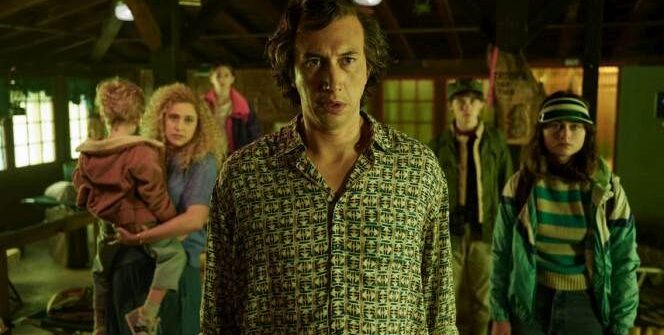
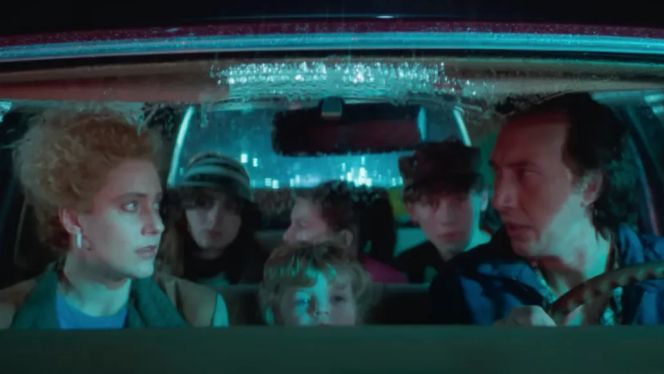
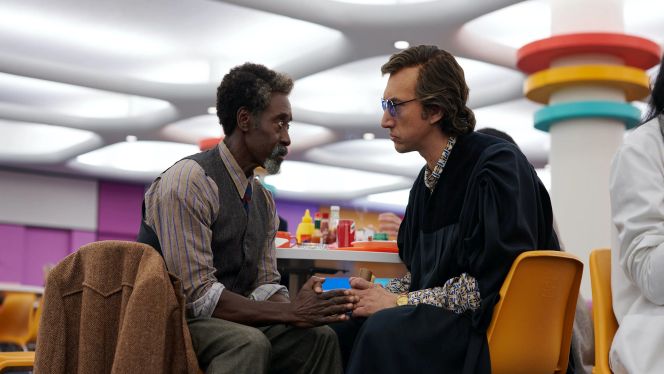
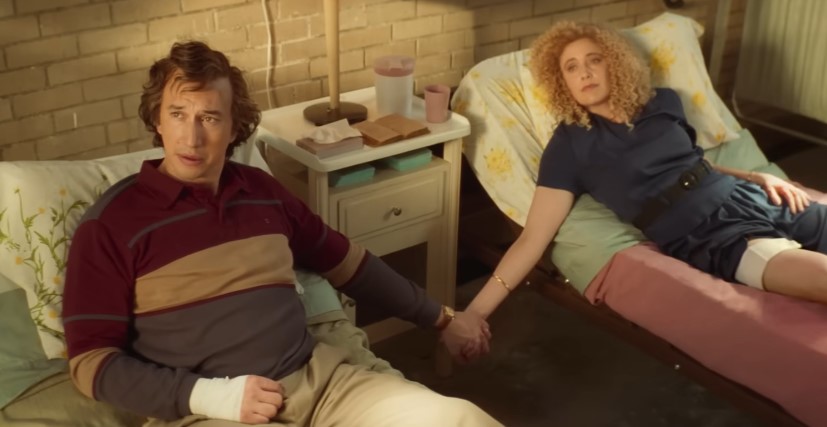







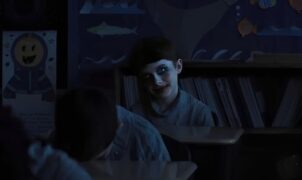







Leave a Reply